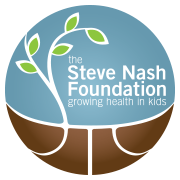
Why It Matters
From their earliest moments, children are impacted by their environments, and science has never been more able to suggest ways in which those impacts can be positive: developments in neuroscience continue to expand our knowledge of what children need to grow, learn, and thrive. Maternal and paternal health, birth conditions, thoughtful interventions, early childhood development programs and services — all work in concert to foster health at the most critical periods of growth.
When a child encounters distress — including abuse and neglect — the brain shapes the experience and its ramifications. For decades, MRI and other imaging has clearly proven out the tremendous effects of trauma hypothesized and understood by correlated social indicators; now, inquiry into how to address those effects is changing how we respond to pediatric and young adult patients, and advances in medical and behavioral science will continue to improve outcomes for children across a broad spectrum of experience.
So, too, has our understanding of how children and adults learn dramatically increased — from Nobel Prize winner in economics James Heckman’s groundbreaking work to groundbreaking ceremonies for Educare Learning Network schools across the country, a mass of evidence supports access to high-quality early childhood education and development services. Through a continuing longitudinal study of infants, toddlers and preschoolers in Educare sites, we’ve learned that early entry into programs providing individualized attention to children’s needs and family dynamics create lasting improvements in social and academic performance, and that these programs benefit entire families.
Around the world, child health is an indicator of community health. Bringing research and attending critical needs resources to bear on the most vulnerable of our populations will change trajectories, change outcomes, and change the world.
Why we don’t use the term “underprivileged” at SNF
In 1991, Canada ratified a United Nations document called the Convention On the Rights Of the Child (the United States remains only one of two UN member states to have not ratified these basic rights) (the other being Somalia). This paper recognizes that children need certain things to be able to grow, and promises to deliver them for the sake of all children. At the Steve Nash Foundation, we work hard to ensure that children have access to those rights that are due to them — to be healthy, to learn, to live free of abuse, and to play without fear of harm. We don’t believe any of these aims to be privileges, yet we see constantly the words “underprivileged” ascribed to children lacking the resources necessary to ensure their growth. Having a school that you can walk to without fear of violence should not be seen as a privilege. Basic nutrition and clean water should not be seen as a privilege. Living in a safe, loving home environment should not be seen as a privilege. We are privileged by the presence of children in our midst. We must take it upon ourselves to honour kids such that we demand for them nothing short of the best. We have to become outraged at the imperfection we put upon them daily. We have to do better. These kids aren’t “underprivileged.” They are underserved, undervalued, and our society’s disservice to them underexposed.
